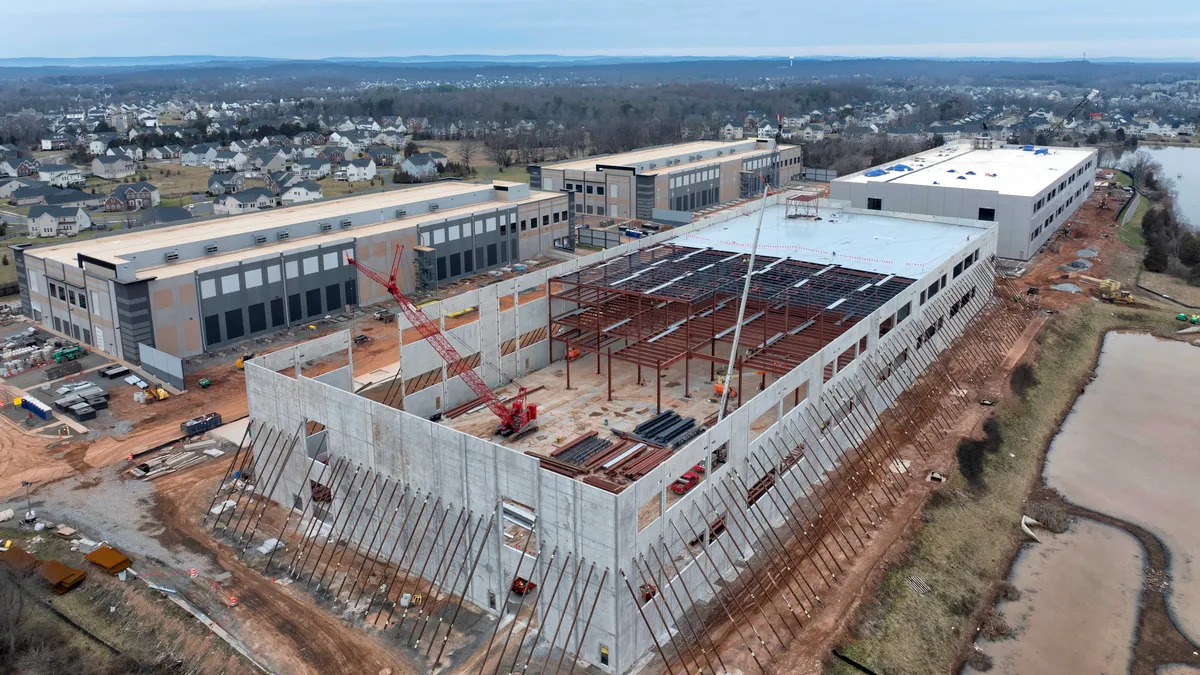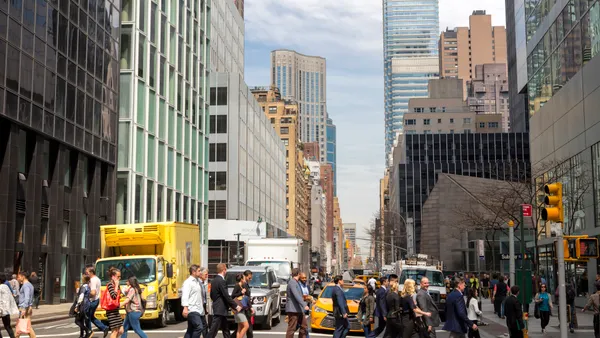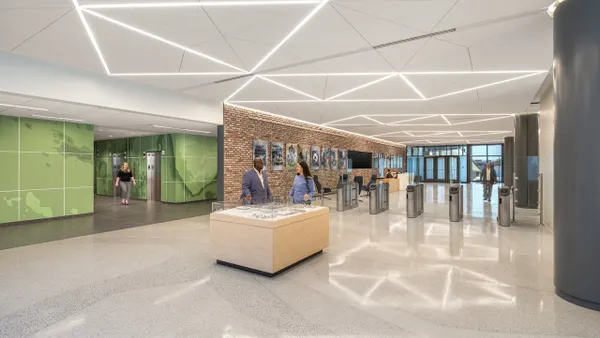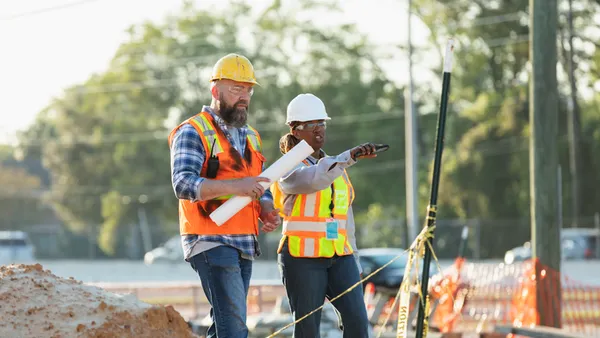Dive Brief:
- The Clark County Board of County Commissioners voted to approve the sale of $750 million in general obligation bonds to help pay for construction of the nearly $2 billion Raiders stadium in Las Vegas, according to The Sacramento Bee.
- The bonds will finance the public share of the project and be repaid with proceeds from a new county hotel tax that the Nevada legislature approved in 2016. Next up, the county will review bond market analysts' reports, set an interest rate and sell the bonds through a group of seven banks underwriting the sale, according to the Las Vegas Review-Journal.
- The bond ordinance also includes taxpayer protections. The bonds will mature during a 30-year period, and the issue will create a fund equal to one year's debt service. Future revenue from the hotel tax will increase the cushion to two years. In addition, the Raiders have agreed to pay off the bonds should the National Football League team move before the 30 years.
Dive Insight:
The bonds will cover the public commitment of $750 million, but $850 million from the Raiders and a $200 million loan from the NFL will cover the balance.
Last month, the Review-Journal reported that the Raiders and the construction team of Mortenson Construction and McCarthy Building had negotiated a guaranteed maximum price (GPM) of $1.8 billion for the stadium. Almost $1.4 billion of that was earmarked for construction costs. Up to that point of agreement, Mortenson | McCarthy already spent $180 million on upfront design, engineering construction and equipment costs. The GMP allowed the county to move forward with this week's bond sale.
The team, however, still has to pay nearly $1.5 million for emergency services and traffic control equipment, on-site detention facilities for the Las Vegas Metro Police, as well as the cost of pedestrian bridges or underpasses that will connect the stadium to the Las Vegas Strip. Also not included in the GMP with Mortenson | McCarthy is the Raiders' $100 million headquarters and training facility, temporary quarters, offsite parking and shuttle system.
What the team will not have to pay for is about $900 million in infrastructure improvements around the stadium. Nevada Department of Transportation officials said the agency planned to do the work prior to the Raiders' decision to move to Las Vegas from Oakland, California, so it simply reprioritized its plans and moved the work around the stadium higher up on its list of projects. Unfortunately for the team – and motorists – the upgrades will not be ready until a year or so after the Raiders are scheduled to start playing in the new venue.












